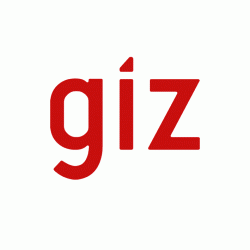Strengthening the influence of Palestinian Refugees on their living conditions (PART)-GIZ
1. Background Information
Background on context
According to the United Nations Relief and Works Agency for Palestine Refugees (UNRWA) around 914,000 Palestinians were displaced between 1947 and 1949 as a result of the establishment of the state of Israel. The refugees fled to the Palestinian territories as well as to the neighbouring countries Jordan, Syria and Lebanon. Demographic growth has led to more than 5 million Palestinian refugees registered by UNRWA today. About a third of these refugees live in the 58 camps administered by UNRWA in the region. 450,000 Palestinian refugees registered with UNRWA in Lebanon since 1948, of which today nearly 175,000 Palestinian refugees currently reside in the 12 camps and 156 gatherings across Lebanon according to the results of the Population and Housing Census of Palestinian Camps and Gatherings in Lebanon-2017. Results showed that 45% of the Palestinian refugee’s population are distributed in the 12 camps while the remaining 55% in 156 settlements called ‘gatherings’ spread over six areas (Tyre, Saida, Tripoli, North Lebanon, Central Lebanon -including Beirut and the Bekaa Valley). The overall socio-economic situation of Palestinian refugees in Lebanon is dire and levels of food insecurity and poverty follow an increasing trend. Palestinian refugees in Lebanon reportedly continue to face acute socioeconomic deprivation and legal barriers to their full enjoyment of a broad range of human rights. Palestinian refugees in Lebanon are reported to have historically been marginalized and excluded from key aspects of social, political and economic life with no right to own immovable property outside the camps; severely curtailed access to public services (other than those provided by UNRWA), such as health and education; and restrictions regarding specific professions and limited job opportunities. According to UNRWA, almost two thirds of the Palestinian refugees in Lebanon are considered poor and discriminatory laws hamper their ability to improve their living conditions. As a result, Palestinian refugees are forced to rely on UNRWA as their primary service provider. The pressure has become more severe since the beginning of the war in Syria. About 30.000 Palestinian refugees from Syria have fled to the camps in Lebanon. The intersection of these two marginalized refugee populations has produced additional material struggles and conflicts of identity. Organisational structures on local level are neither well established nor representative. Furthermore, they are only connected to other organisations on meso- and macro-level in a very limited way, which makes it impossible for them to properly represent the interests of the refugees. Due to unclear responsibilities and inefficient structures there are tensions and conflicts between the organisations themselves and in the refugee camps. Because of this, the Palestinian refugees and their representing organisations are not able to sufficiently participate in social processes targeting the improvement of their living conditions.
Basic information about the project:
Strengthening the influence of Palestinian refugees on their living conditions (PART)
The project is part of the Supporting Palestinian Refugees (SPR) program that is implemented in Gaza, Jordan, Lebanon and the West Bank. It contributes to the program's objective (to improve the living conditions of Palestinian refugees in the region) by strengthening the influence of Palestinian refugees for improving their living conditions in a protracted violent conflict on individual and structural level
In the frame of the cooperation with LPDC, GIZ supports the capacity of LPDC in order to strengthen its outreach to youth and to foster a dialogue between the LPDC and the Palestinian refugee youth. Thereby youth concerns will be considered within the internal policy dialogue. GIZ supports LPDC in its development and coordinating the implementation of the National Palestinian Youth (NPY) strategy in Lebanon.
2. Purpose of the Consultancy
Finalising the LPDC National Youth Strategy for Palestinian Youth in Lebanon.
3. Tasks
The Coordinator will undertake the following tasks:
- Facilitate meetings with relevant international and national stakeholders in order to consolidate feedback on the National Strategy for Palestinian Youth in Lebanon;
- Coordinate with UNRWA and Palestinian Embassy in Lebanon on the strategy
- Collecting, compiling and editing the document based on stakeholder’s feedback;
- Liase with youth groups, NGO and other civil society actors
- Prepare and organize the launching of the strategy
- Lead on coordination platforms
- Set up and operate new coordination mechanisms
- Regular reporting to LPDC and GIZ
- Support the implementation of the planned components of the strategy
4. Qualifications
a. Academic Qualifications:
- Minimum of a Bachelor in a relevant field, e.g. political sciences, international
relations, peace and conflict studies, social sciences (Master degree is asset).
b. Experience:
- Minimum 3 years of work experience in Palestinian refugee camps, in participatory
approaches and community development an asset
- Minimum 1 year of work experience in coordination and facilitation at an UN, international, governmental and/or civil society institution
c. Competencies/Knowledge:
Knowledge in use of computer software packages for word‐processing, excel, power point, and the internet;
- Excellent communication skills;
- Excellent reporting skills;
- Excellent analytical and problem-solving skills;
- Fluent in English and Arabic;
- Excellent knowledge of the Palestinian context in Lebanon and the region
- Political sensitivity
5. Deliverables/Outputs
The Consultant is expected to complete the tasks specified in the above section starting July 6, 2019, and submit the following deliverables as detailed in the table hereafter.
For more information, please find attached the file named: "GIZ-TOR LPDC Coordinator"
How to apply
9. Application Process
Please send your CV, technical proposal and 2—3 references for your above-mentioned skills by mail to [email protected]
Note: Only applications containing the mentioned documents will be taken into consideration.
Subject of the mail: “Strengthening the influence of Palestinian Refugees on their living conditions (PART)-GIZ”
Deadline is July 6, 2019
Note: any change to this ToR which might be proposed by the consultant or the beneficiary must be discussed and agreed with the contracting authority (GIZ) and documented in writing as an addendum to the contract.
منتهية الصلاحية